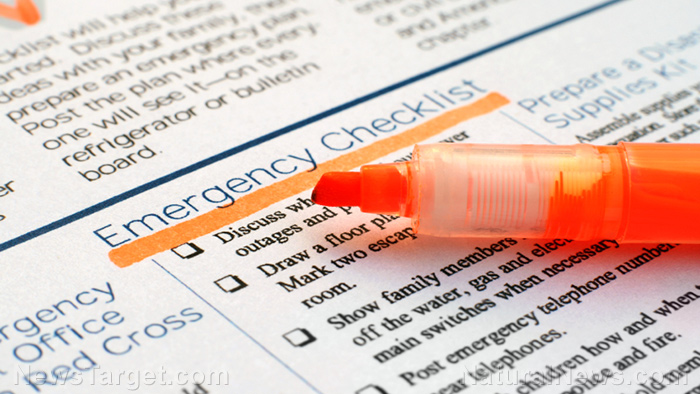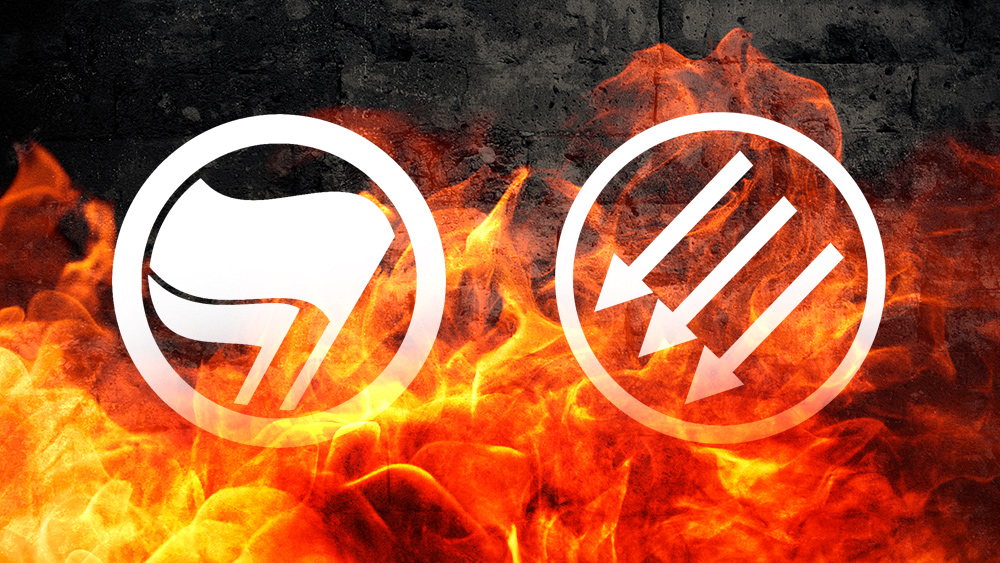
The Russia-Ukraine war is making headlines everywhere. And while things are still quiet in America, shoppers will notice a steady increase in food prices.
If you're worried about not having enough supplies for your family when SHTF, start stocking up on essentials now before prices soar even higher at the nearest store. (h/t to SHTFPlan.com)
How the Russia-Ukraine war is affecting global food supply
Non-preppers are likely panicking right now as they watch the recent updates from Ukraine, but preppers have been stocking up for an event like this way before news broke out about the ongoing war.
Only hours after Russia announced a ban on fertilizer exports, the country of Hungary announced that it is halting all grain exports effective immediately. This is shocking news because as one of Europe's most grain-rich countries, Hungary's decision could send already record-high wheat prices even higher.
Egypt, Tunisia and Turkey are almost entirely reliant on Russia and Ukraine for their wheat imports. Russia and Ukraine, as expected, are also cutting off grain exports of the commodity for the time being.
While the ruling class and mainstream media are blaming the Russian "invasion" for these food shortages, the problem isn't a new one. Preppers already noticed this issue last fall when some store items were unavailable.
However, this doesn't mean things are fine, especially since the alleged Russian "invasion" and geopolitical decisions will only compound the food supply issue.
According to a report from the Illinois Newsroom, Ukraine and Russia supply almost 30 percent of the world's wheat and at least 20 percent of its corn.
Megan Konar, a researcher of global supply chains at the University of Illinois, said millions have perished due to food shortages during World War II. An estimated 20 million people died in the conflict in World War II, but another 20 million people worldwide also died at the time from hunger, starvation and famine. This highlights the fact that war and food security are "very tightly related to one another," explained Konar.
What to stock up on before SHTF
Now that you know about the link between war and food security, you better start stocking up on essentials. Get what you can while prices still haven't skyrocketed in stores because the Ukraine crisis could start to impact even people who were initially shielded from the food shortages of last fall and early winter.
As spring nears, you should think about starting a home garden so you can grow food for your family. (Related: Food crisis incoming: War in Ukraine threatening global food supplies, half a billion people at risk of hunger.)
If you work on being more self-sufficient now, you will have a better chance of surviving what's coming.
Here's a list of food supplies you should stock up on for both short- and long-term survival scenarios. Note that the short-term survival scenarios include blizzards or short-term power outages, while long-term scenarios include an EMP attack, nuclear disaster or any event that would force you to bug in at home for at least one month.
Short-term food supplies:
- Canned food (Should include canned meat, beans, fish, fruit and vegetables.)
- Cereal
- Couscous
- Crackers
- Dried fruits or fruit leather
- Granola bars
- Instant mashed potatoes
- Jams and jellies
- Oatmeal
- Peanut butter or powdered peanut butter
- Powdered milk
- Red lentils
- Water (For drinking, cooking, cleaning and hygiene.)
Long-term food supplies:
- Beans, lentils and rice
- Canned foods
- Canned tuna in oil
- Cooking oils (Like Lard, olive oil, or vegetable oil.)
- Freeze-dried fruit
- Freeze-dried meat
- Freeze-dried veggies
- Instant mashed potatoes
- Honey
- Powdered milk
- Protein bars and granola bars
- Seaweed
- Pickles and preserves
- Water
Once you've stocked up on food, don't forget to also stock up on water for the whole family. You will need a lot of water for drinking, cooking and cleaning, especially if you are prepping for a large family.
Even certain foods, such as dried beans, rice and oatmeal, are cooked in water. If you're worried about not having access to clean water from the tap, stock up on bleach so you can purify water when SHTF.
Additionally, stock up on high-fat foods that don't need to be cooked, such as peanut butter or other nut butters and coconut oil. These healthy fats will provide a lot of calories in one bite and can get you further than a cup of oatmeal.
Remain self-sufficient and prep before SHTF. Set some money aside for emergencies and stock up on food and water for your whole family before it's too late.
More related stories:
12 Signs that food shortages are already here.
Where will you be when the nukes start falling on America?
Farmers are reducing how much food they produce due to surging fertilizer prices.
Watch the video below to learn more about the Russia-Ukraine war.
This video is from the BrighteonTV channel on Brighteon.com.
Visit FoodFreedom.news for more tips on how to set up your survival stockpile before disaster strikes.
Sources include:
Please contact us for more information.





















